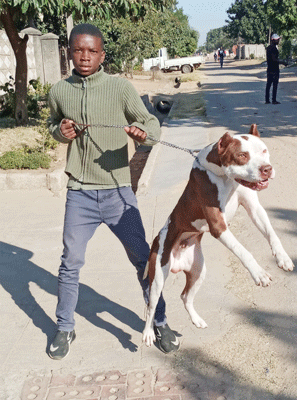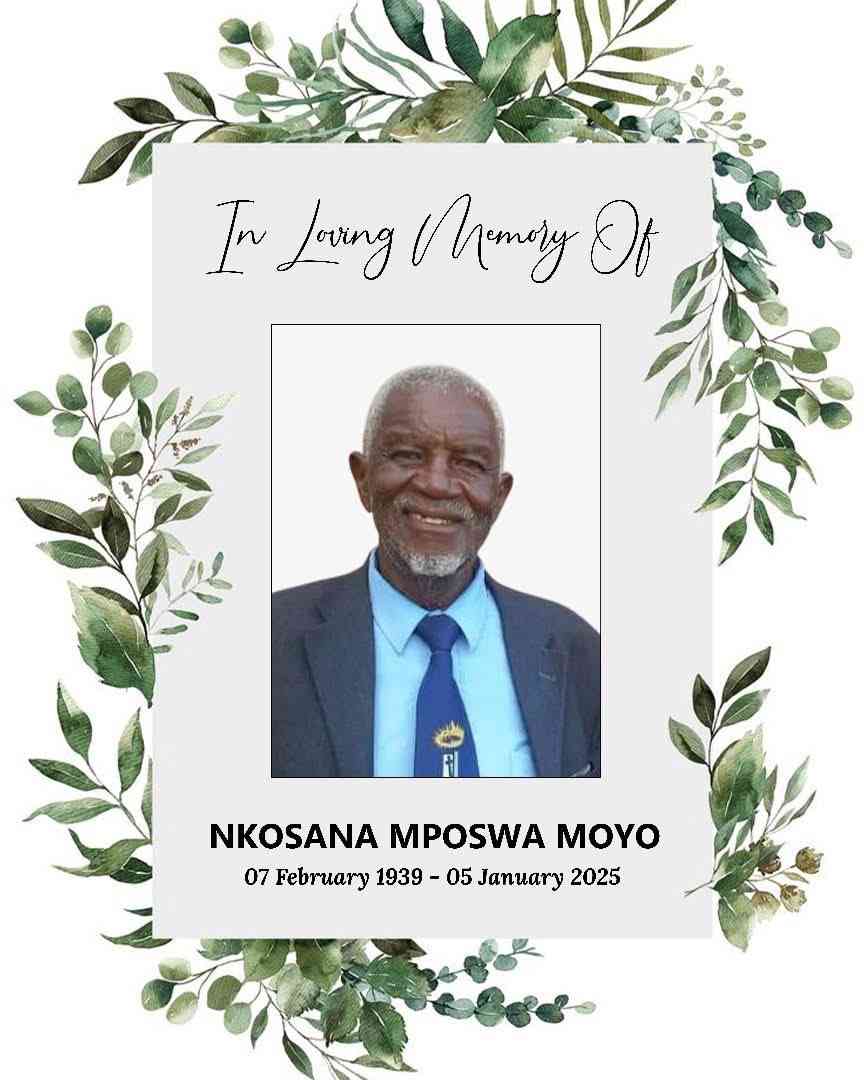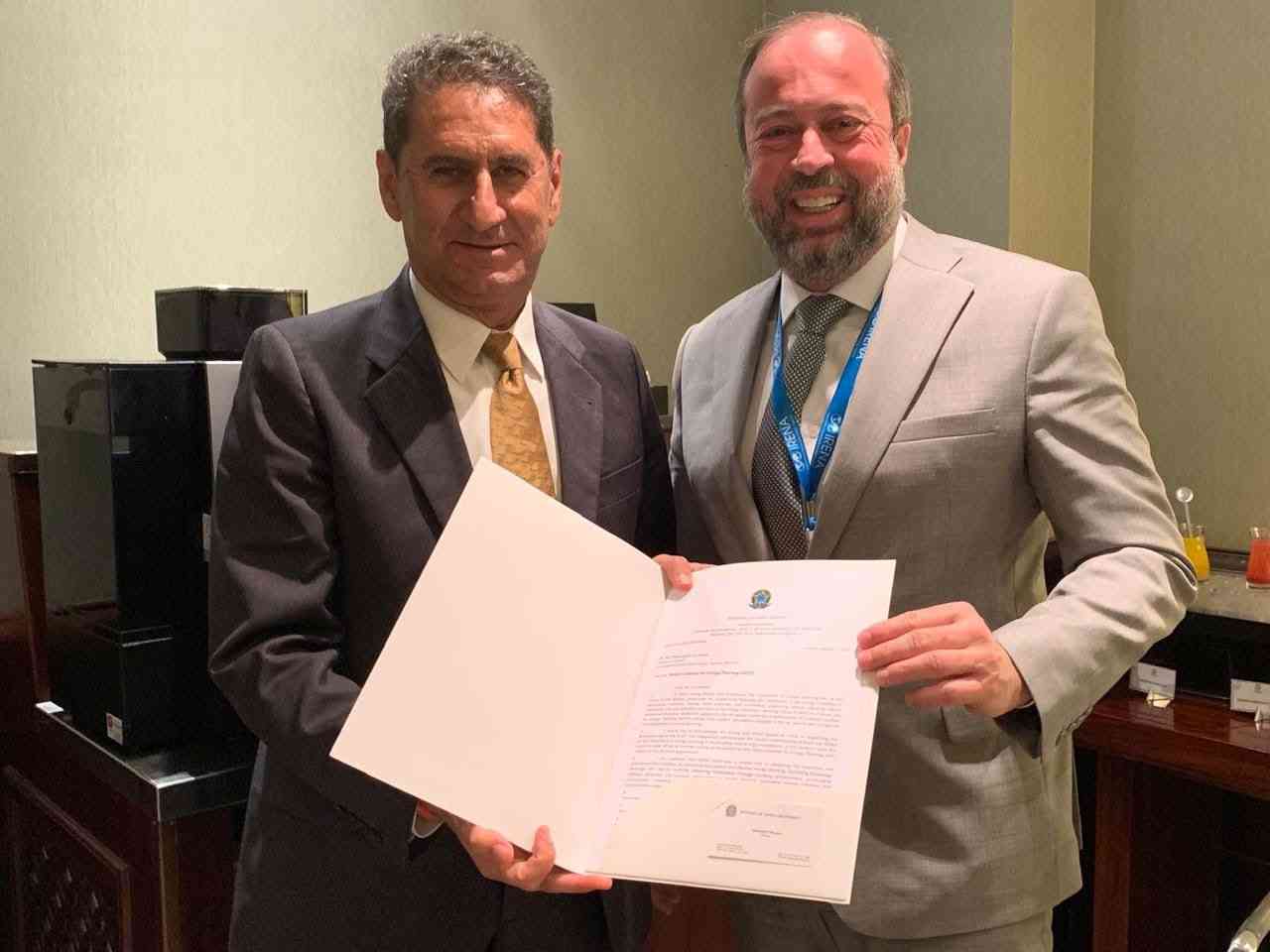
By Kennedy Nyavaya
Under the covers of an early winter night, the backyard of one of the co-houses in the high density suburb of Glennorah, Harare, hosts four men facilitating a mating process between two colorful American pit-bull terriers.
A dozen others watch on, occasionally engaging in spontaneous conversations about in-breeding, mixed dog breeds and the Covid-19 pandemic.
“The most popular dog in the ghetto nowadays is the pit-bull (American Pit Bull Terrier) or its mix with the Boerboel,” one of the breeders, Tafadzwa Dumba tells Standard Style while patting one of his bitches named Sasha.
For showy teenage boys and young men, taking a walk in the ghetto nowadays is no longer complete without a leashed intimidating dog of this nature by the side.
The longstanding urban style of dressing up to take a stroll at dusk has taken an interesting twist that includes a showcase of prestigious canines.
“People are buying both security and prestige on these dogs, but most of the times it is an issue of status particularly among teenagers because these are not effective guard dogs yet they are beautiful and famous worldwide,” says Dumba, who has been breeding dogs for half a decade.
The 25 year old is known on this part of the city as a “dog father” and his words, particular when dealing with different types of terriers, are gospel truth for most dog lovers, but taken with a pinch of salt by other residents.
- Chamisa under fire over US$120K donation
- Mavhunga puts DeMbare into Chibuku quarterfinals
- Pension funds bet on Cabora Bassa oilfields
- Councils defy govt fire tender directive
Keep Reading
Unlike regular mongrels known to have been a part of the household since time immemorial, when talking about the terrier family pets many locals cannot overstate their fear.
Such “bad publicity” has negative effects that leave breeders like Dumba with no choice but to bargaining for less when selling.
“People love these dogs but they are scared most times and that is the reason why we cannot sell them at the right price (for cheap). They are hesitant to give the right amount because of the bad publicity,” he said.
Prices for his puppies range between US$100 and US $250 depending on qualities like color and size, but could fetch less depending on the customer’s appreciation of the breed.
However, the public’s fear of these breeds is not far-fetched given the pit-bull’s bad reputation worldwide.
Last year a pit-bull bit a domestic worker to death on the other side of the Capital City, and in the USA where they make up to 7% of the total dog population, the breed accounted for most of the total 36 dog bite-related fatalities in the same year according to DogsBite.org.
In countries like Canada, Belgium and New Zealand, pit-bulls are classified as dangerous animals and thus banned at law. But there is no such regulation in Zimbabwe which leaves individuals with the decision to own them or not.
According to Zimbabwe National Society for the Prevention of Cruelty to Animals (ZNSPCA) inspector Kudzanayi Chatikobo, locals have the liberty to own any kind of dog they wish but there are guidelines to consider before doing so.
“There are specific needs for every breed that one needs to know before owning a dog and these may determine the welfare of one’s pet,” he said.
“Backyard breeders mostly sell dogs without mentioning some of these specific traits and that sometimes affect both the dogs and the owners negatively. So we encourage people to have more information on the kind of breed they want to own before they go on to buy it.”
The most ideal way to get a dog is through adopting one from the ZNSPCA homes across the country says Chatikobo.
“As the SPCA, we cannot say we do not want people to breed dogs, but we are worried about how they do it, especially regarding the welfare of the dogs,” says Chatikobo.
They currently work with the Harare City Council to manage the welfare of local pets like dogs following a surge in dumping and mistreatment of animals in the city.
Chatikobo says their concerns are guided by the preservation of the five freedoms of an animal from hunger and thirst, discomfort, fear and distress, pain, injury or distress and freedom to express normal behavior.
“Chances are high that dogs bred in high density suburbs are confined in small cages among other uncomfortable settings that affect the welfare of the dogs because most people who do backyard breeding do not even have alternatives when they are not bought and that gives room for dumping,” he said.
However, Dumba and his colleagues, some of them university graduates struggling to get formal employment, insist that their operations follow standard guidelines for breeding.
For an additional fee, they are using the knowledge amassed from the internet and other mediums to train dogs different skills depending on what the buyers like.
“What many people do not understand is that dogs are trained the way you want them to conduct themselves, of which if you train a boerboel aggression, given its body size and power one may not be able to control it,” he says.
But, all this may not be enough for the authorities to grant the green light to the activities as they doubt the capacity of unlicensed breeders to take good care of these exotic breeds or regulate their discipline in what has seen them discourage the practice.
Statutory instruments like the Harare Dog Licensing and Control bylaws dictate that all breeders must be licensed in a process that entails inspection of kennels and environment where the dogs will be kept.
In addition, there should be no more than four dogs on every 2000 square meters among other stringent regulations that the ghetto dog fathers cannot comply with.
Caiphus Nzira (29), who depends on breeding as his only source of income, says the regulations to their business are too much and unfair.
“Those from affluent suburbs can do it freely even when they are not registered, but we are branded puppy mills or dog peddlers who run illegal dog pounds perhaps because we are poor,” laments Nzira who owns a group of dogs that are scattered in different yards across the neighborhood. CONTINUED ON PAGE 9










